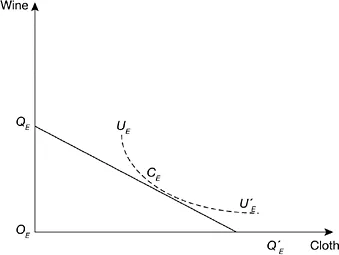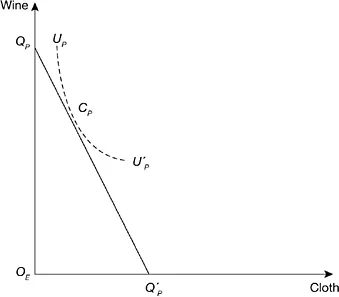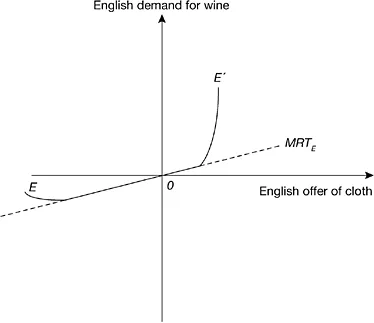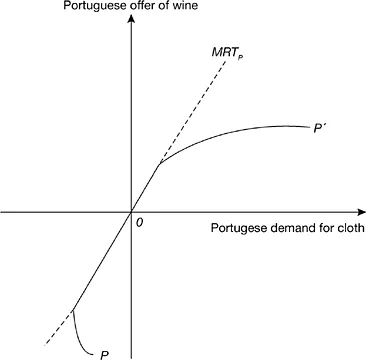
eBook - ePub
International Trade Theory
Murray Kemp
This is a test
Compartir libro
- 240 páginas
- English
- ePUB (apto para móviles)
- Disponible en iOS y Android
eBook - ePub
International Trade Theory
Murray Kemp
Detalles del libro
Vista previa del libro
Índice
Citas
Información del libro
Murray C. Kemp is one of Australia's foremost economists. He has held positions across the world including London School of Economics, U.C. Berkeley, Columbia University, McGill University, MIT, and latterly Macquarie University. Kemp was a Member of Council for the Econometric Society and was a Distinguished Fellow of the Economics
Preguntas frecuentes
¿Cómo cancelo mi suscripción?
¿Cómo descargo los libros?
Por el momento, todos nuestros libros ePub adaptables a dispositivos móviles se pueden descargar a través de la aplicación. La mayor parte de nuestros PDF también se puede descargar y ya estamos trabajando para que el resto también sea descargable. Obtén más información aquí.
¿En qué se diferencian los planes de precios?
Ambos planes te permiten acceder por completo a la biblioteca y a todas las funciones de Perlego. Las únicas diferencias son el precio y el período de suscripción: con el plan anual ahorrarás en torno a un 30 % en comparación con 12 meses de un plan mensual.
¿Qué es Perlego?
Somos un servicio de suscripción de libros de texto en línea que te permite acceder a toda una biblioteca en línea por menos de lo que cuesta un libro al mes. Con más de un millón de libros sobre más de 1000 categorías, ¡tenemos todo lo que necesitas! Obtén más información aquí.
¿Perlego ofrece la función de texto a voz?
Busca el símbolo de lectura en voz alta en tu próximo libro para ver si puedes escucharlo. La herramienta de lectura en voz alta lee el texto en voz alta por ti, resaltando el texto a medida que se lee. Puedes pausarla, acelerarla y ralentizarla. Obtén más información aquí.
¿Es International Trade Theory un PDF/ePUB en línea?
Sí, puedes acceder a International Trade Theory de Murray Kemp en formato PDF o ePUB, así como a otros libros populares de Business y Business generale. Tenemos más de un millón de libros disponibles en nuestro catálogo para que explores.
Información
Part I
The classical theory of international trade
1
The Torrens-Ricardo Principle of Comparative Advantage
An extension
1.1 Introduction
Nearly two hundred years on, the Torrens-Ricardo Principle of Comparative Advantage is still widely admired within the profession, and appears prominently in many elementary textbooks and in most treatises on international trade. However, careful inspection of the Principle, either in the mildly disparate formulations of Torrens (1815:264–5) and Ricardo (1817:135) or in any later formulation, reveals that it relies on restrictive assumptions about preferences and technology in each trading country, assumptions that are always implicit, never explicit. Specifically, the Principle rests on the assumption that in autarkic equilibrium each country consumes all commodities, at least incipiently. Our purpose is to make good this claim and to reformulate the Principle in sufficient generality to accommodate alternative assumptions about preferences and technology. In our reformulation the emphasis is on marginal rates of substitution in consumption, not on the traditional ratios of marginal labour costs in production. Thus our restatement concerns not merely the proper display of the Torrens-Ricardo Principle but rather its essential content. It is shown in effect that, in existing formulations, the supply side is assigned a role that it cannot always sustain. That two classical economists overlooked this point can be understood, but the same indulgence cannot be extended to the authors of neo-classical textbooks.1
1.2 The standard formulation
In the usual textbook formulation, two countries, England and Portugal, produce, consume and trade two commodities, cloth and wine; there are no non-tradable commodities. Each commodity is produced by means of a single primary factor, homogeneous labour, under constant returns to scale. Within each country, but not necessarily across countries, all households are identical in all respects: size, age distribution, preferences, quality of labour and access to technical information.2
For England, the household and (by revision of quantity units) the economy-wide production possibility locus is represented in Figure 1.1(a) by the straight segment QEQ′E, the slope of which is (minus) the ratio of the two marginal labour costs of production. In the absence of market distortions, a unique autarkic equilibrium is represented by point CE, where a community indifference curve forms a tangent to the production possibility locus and where, for each commodity, (positive) consumption is equal to production. The equilibrium commodity price ratio is equal to the ratio of marginal labour costs. Similarly, the unique autarkic equilibrium of Portugal is represented in Figure 1.1(b) by point CP.

Figure 1.1a England’s autarkic equilibrium, with incomplete specialization

Figure 1.1b Portugal’s autarkic equilibrium, with incomplete specialization

Figure 1.2a England’s offer curve, with incomplete autarkic specialization

Figure 1.2b Portugal’s offer curve, with incomplete autarkic specialization
Abandoning the assumption of autarky, let us pass in review all conceivable world price ratios. Given any particular price ratio, we can determine the profit-maximizing pair of English outputs, uniquely except when the hypothetical price ratio is equal to the equilibrium autarkic price ratio, and we can determine uniquely the utility-maximizing English consumption pair. Transferring that information to Figure 1.2(a), we obtain the offer curve EOE′ for England, where the straight segm...